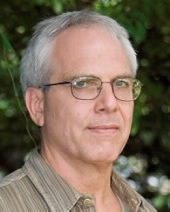 A love affair with nature William Laurance is a Distinguished Professor and director of the Centre for Tropical Environmental and Sustainability Science at James Cook University in Cairns. I get asked sometimes why I became an ecologist. Truth be said, it was an accident. I really wanted to be a zoologist—and not just any zoologist, but one who ran and led his own zoo dedicated to saving endangered species. I got this idea into my head at the grand age of 12 years old, not by reading the refereed scientific literature but because my mother gave me a copy of the autobiography “My Family and Other Animals” published by Gerald Durrell, the British naturalist (Penguin Books, 1956). The book is about Durrell’s childhood on the Greek isle of Corfu, living in a series of colourful villas with his widowed mother, siblings and a never-ending stream of creatures—from Quasimodo the Pigeon to Ulysses the Owl and Roger the Dog—that Durrell adopted as personal friends. Durrell lacked formal training as a scientist but, as a young man, that did not stop him from organising wild trips to wilder places to catch an entire ecosystem of wild animals. They were intended for zoos, but just as importantly, they were the stars of a stream of books describing Durrell’s sojourns. The activities Durrell engaged in—catching animals from the wild to be housed in zoos for our personal entertainment and enlightenment—would surely be looked down on today. But in Durrell’s era, it was akin to having a love affair with nature. He coddled the animals he caught or bought, cured their ills, detailed and tolerated their eccentricities, and in every way befriended them. While in high school and university, I spent a half-dozen summers working in various zoos and wild animal parks. Eventually, I managed to attain an internship at Durrell’s own zoo—the Jersey Wildlife Preservation Trust on Jersey Island, UK—a unique place dedicated to breeding endangered species in captivity. I met Durrell several times—“Gerry,” as he was known. He was a quiet man and most clearly at home with his zoo staff and animal charges—though he became more garrulous and smart-arsey while downing his evening Gin & Tonics. Alas, after seven summers pursuing the dream of zoo biology, I finally realized it was “the right sentiment, but the wrong goal.” Saving animals in zoos is like saving a few shiny baubles from Christmas, while tossing away the Christmas tree and everything that holds those baubles in place. Conserving habitats, and maintaining their crucial functioning and connectivity, is the only real solution. So, literally overnight, I decided to become an ecologist and field biologist. I remember well phoning up my terrific undergraduate supervisor, Eric Yensen, at home, quite late at night, with the pronouncement of my transformation. A groggy Yensen said, “We can talk about it tomorrow.” We did talk about it. And the more we talked, the more convinced I became that I needed to study the threatening process of habitat fragmentation for my PhD. And I needed to work in the tropics, because that is where species diversity is highest and where habitats are disappearing the fastest. A simple decision, really, for a boy who was studying at a small university in the western U.S. and who had never even set foot in the tropics. Anyway, it all worked out in the end. I did my PhD at the University of California, Berkeley, studying the impacts of habitat fragmentation on Australian rainforest mammals. Later, I moved to Brazil, where I worked on the world-famous Biological Dynamics of Forest Fragments Project—the world’s largest and longest-running experimental study of habitat fragmentation. By then I was studying not just animals but, more broadly, the complex process of ecological decay that plagues isolated ecosystems of plants, animals and their forest homes. It wasn’t, for me, quite the path I’d expected, but then life never does that, does it? Today, we direly need more scientists and more science, but, ironically, it was a non-scientist who drew me into the fold. Durrell wrote with insight and wit, but with a child’s eyes, unclouded by excess detail or theory. It was not “scientific” per se, but it did not matter. Durrell went straight for the heart and soul, and for me, at least, he scored a direct hit. The brother of famed novelist Lawrence Durrell, he had a writer’s DNA from the beginning. If you have never read Gerald Durrell, at least skim his “Speech for the Defence,” which introduces his first book. Would your scientific writing capture a reader this way? Adapted from W. F. Laurance. 2018. Conserving species in a fragmented world: The established researcher. Bulletin of the Ecological Society of America 99:167-178. Website: https://portfolio.jcu.edu.au/Researchers/bill.laurance Further reading: https://www.nature.com/articles/nature13717 https://www.science.org/doi/10.1126/science.278.5340.1117 https://www.nature.com/articles/s41586-024-07303-5 https://www.science.org/doi/10.1126/science.291.5503.438 |




